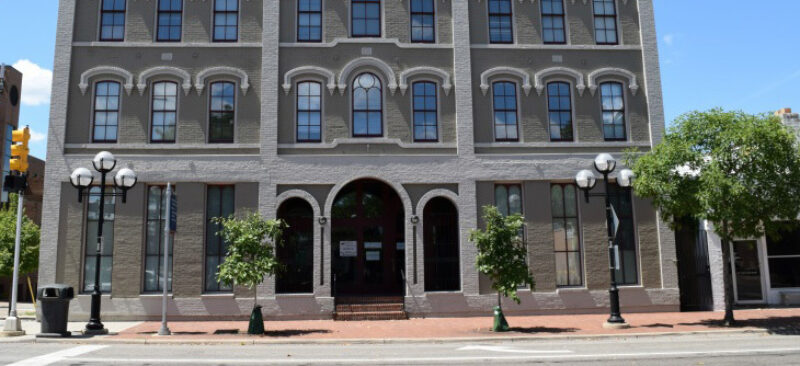June 29, 2021
by Neel Hajra, Former AAACF CEO
As a life-long resident of Washtenaw County, I love that the Ann Arbor Area Community Foundation (AAACF) engages in a wide and diverse range of philanthropic activities to address an evolving community. If forced to identify just one example of how AAACF has evolved in recent years, it would be our Community Scholarship Program (CSP). That’s because CSP is more than a scholarship program—it embeds multiple new philosophies and AAACF’s new Core Values (Prioritizing Community, Pursuing Equity, Earning Trust, Leveraging Knowledge & Enhancing Collaboration). Although CSP has been on my mind during this season of celebrating high school and college graduations (and do watch the video about our 12 CSP college grads!), I want to reflect on CSP now as an illustration of how we are approaching our work in general moving forward.
- Address root causes: Rather than just focusing on the symptoms of a problem, more and more AAACF is considering how to address the root cause of those symptoms — the broader systemic issues. AAACF has always given scholarships, but CSP is designed to promote degree attainment through multi-year awards and a dedicated college success coach. Research shows that empowering young adults with college degrees can lead to more income, better health, and greater life satisfaction. Merely awarding one-time scholarships was not addressing the broader goal of earning two- and four-year degrees.
- Reframe our work in terms of outcomes: When we started thinking of our work as a degree attainment program, it led us to focus on outcomes. We’re tracking those through a longitudinal evaluation that will help us understand the impact of the college success coaches. We also realized that to meet outcomes we needed to do even more along the way, so we established an emergency needs fund to help keep students in school and enhanced our funding packages, including flexibility in the timing of payouts.
- Be data-driven: CSP was built on data that showed us local students with certain backgrounds would benefit the most from our support (students of color, first generation college students, and students from economically disadvantaged families). We continue to review data such as the program evaluation. Data keeps us accountable by tracking the graduation rates for our scholars (CSP students are graduating at twice the rate of what would otherwise be expected based on their backgrounds!).
- Prioritize community: Philanthropic scholarships tend to reflect the backgrounds of donors who establish them. We've been so gratified that taking a community-first approach (where our target populations don't necessarily match our donors' backgrounds) has actually increased donor support. Our supporters are inspired by our community-driven goals to address local needs and opportunities with measurable outcomes. Students from Washtenaw County schools and their families, teachers, and counselors, along with donors, supporters, volunteers, and partners who believe in the power of scholarships make CSP a true “community” program.
- Use an equity lens: CSP provides resources to “level the playing field”— the very name of the fund that seeded the program in recognition of the inequities around accessing scholarships and preparing students to enroll in college and persist to degree attainment. We are comfortable focusing on students with particular backgrounds because it's where we can make the greatest impact on those scholars and also for the community as a whole. The merit of the CSP students is proven by their persistence and success.
- Consider how philanthropy interacts with policy: We've become more aware that philanthropic work can be enhanced or defeated by state or federal policy. For example, through CSP we've discovered that many colleges in Michigan practice scholarship displacement, where they reduce a scholar's award by the amount of their private scholarship support. The net result is no financial benefit to our scholars. In addition to coordinating with colleges to mitigate these results, we are also engaging at the state level to explore potential policy reforms that ensure that deserving scholars get every dollar of benefit from us and from their colleges. We've helped lead statewide conversations among coalitions of foundations and colleges and we're coordinating with the Council of Michigan Foundations on solutions including the potential for adjustments to state or federal laws that reduce the impact of scholarship displacement.

